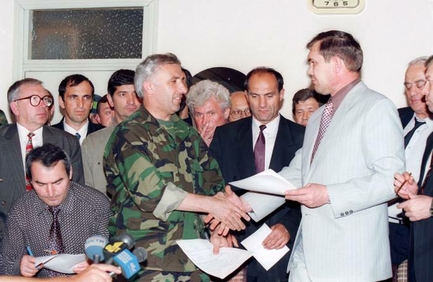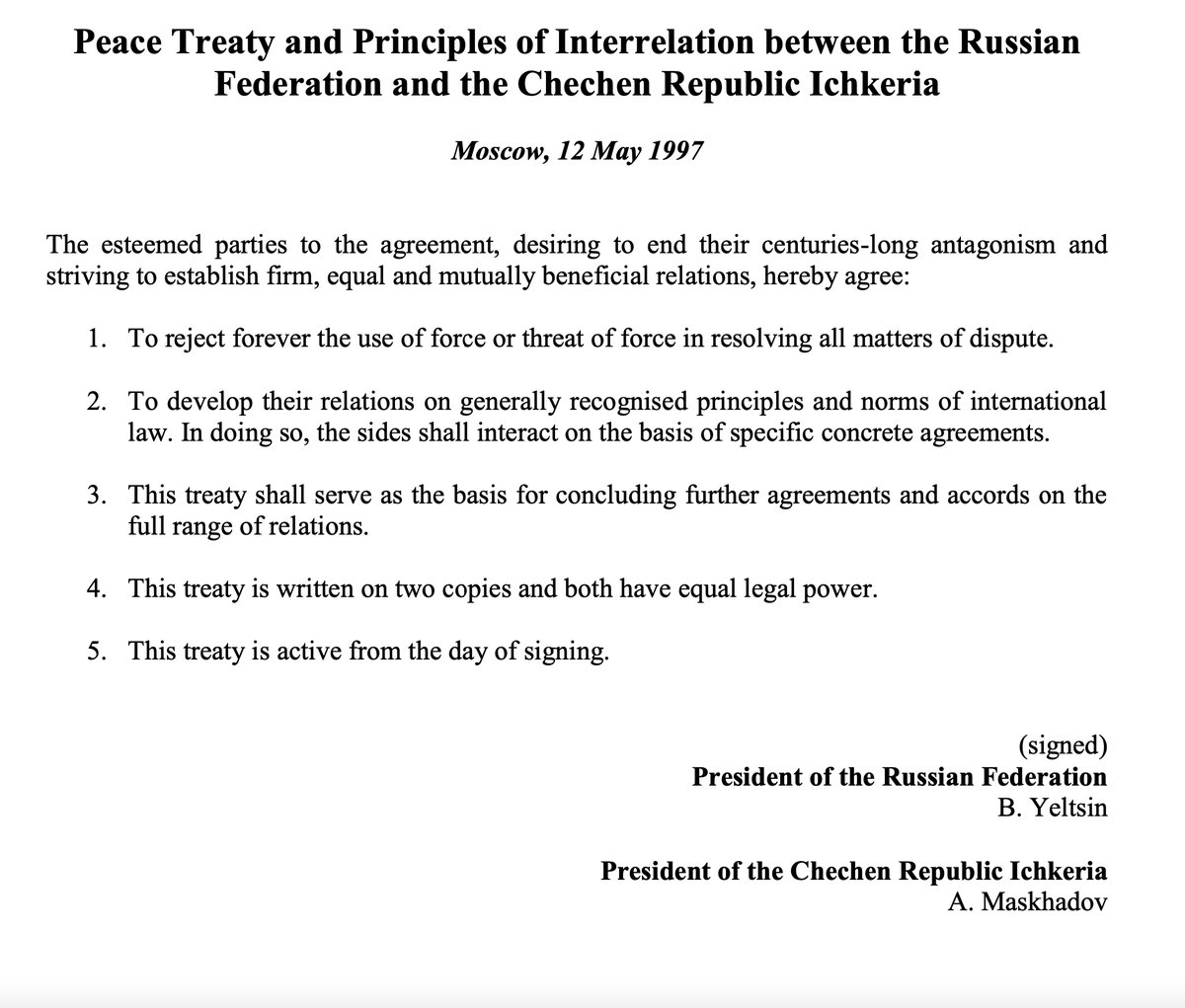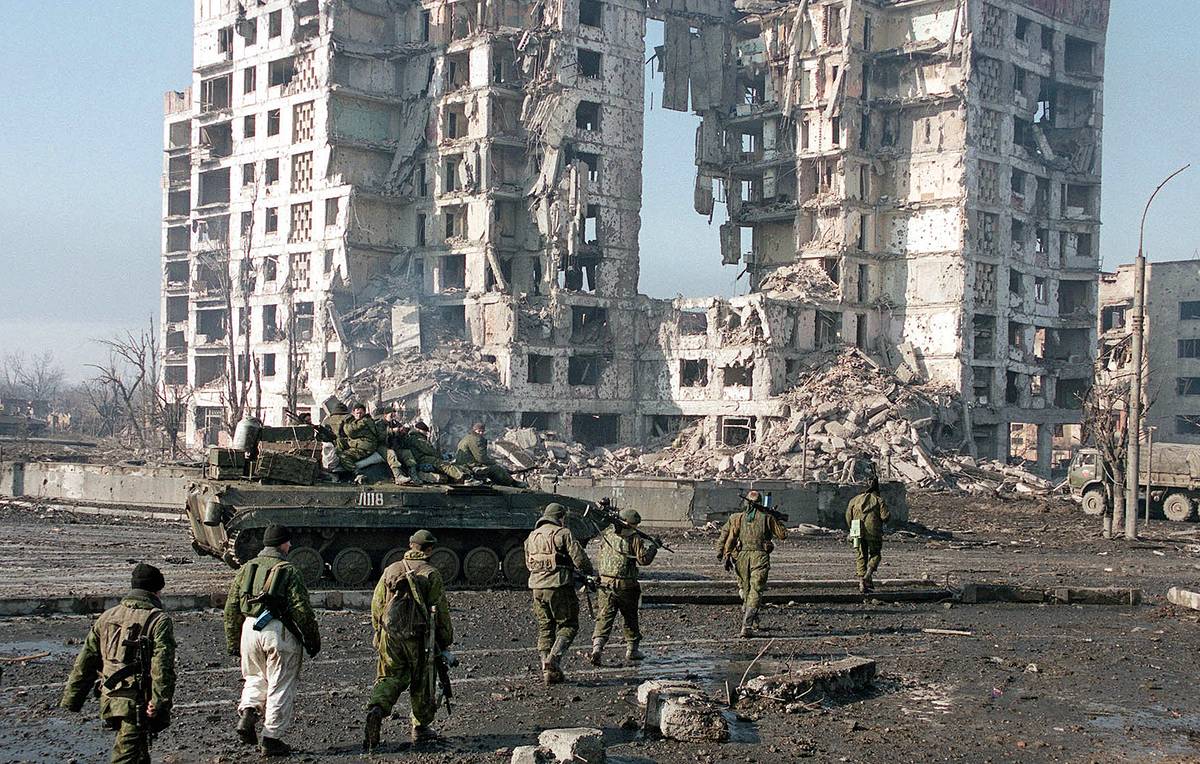👇When we are talking about a truce or even peace, we should keep in mind that Russia won't be honouring it. Any ceasefire will be used for regrouping, restocking and then attacking again with a better chance of success. Notice that they compare Russian situation to Khasavyurt
https://twitter.com/JuliaDavisNews/status/1594408064337301504
First Chechen war 1994-1996 ended with Khasavyurt Accords. Russia withdrew it forces from Chechnya. Independence of Chechnya remained an open question which had to be determined by 2001 

Next year, in 1997 Russia signed a peace treaty with Chechnya. President Yeltsin agreed on "rejecting forever the use of force" and "developing relations on the norms of international law". Many viewed it as the de facto recognition of independence 

"Forever" lasted for two years. In 1999 same president Yeltsin who signed the treaty invaded again. This war played a key role in Yeltsin to Putin transition, allowing Yeltsin to boost the heir his family chose from a nonane to the national leader just in a few months 

Interestingly enough, it was around 1997 when Russia stopped its effective de-militarization continuing since collapse of the USSR (mostly for the lack of funding) and started figuring out how to rebuild it - now on much more limited resources. 1997 can be seen as a turning point
Post-Khasavyurt era was characterised by the massive promotion of state security to the upper echelons of power. All three Yeltsin's last Prime Ministers were state security officers. Putin's succession was no accident, it was a deliberate choice of Yeltsin to hand power to KGB 

One could argue that the Khasavyurt did not deescalate the situation, it escalated it. In Russia this truce still serves as an epitome of cowardice and betrayal. It is a dishonour that can be cleansed only by a new offensive
Second Chechen War was predetermined in Khasavyurt
Second Chechen War was predetermined in Khasavyurt

The same way that the Khasavyurt accords of 1996 and the peace treaty of 1997 predetermined the second war that started already in 1999, now ceasefires or peace treaties will predetermine the next Russian invasion. It will only buy Russia the time to regroup, like Khasavyurt 

Appeasers assume that Russia will honour a treaty. What they don't get is that from Russian perspective it is *honouring* such a treaty that would be seen as shameful and dishonourable. Breaking it would be seen as an act of national redemption. Like it happened in 2000 

Putin's reputation as a national saviour was earnt by *breaking* a peace treaty. Treaty is shameful = breaking it is seen an act of national redemption. Same will happen this time, too. After all, as Sergey Kirienko pointed out, "Russian state is not based on treaties". The end 

• • •
Missing some Tweet in this thread? You can try to
force a refresh





